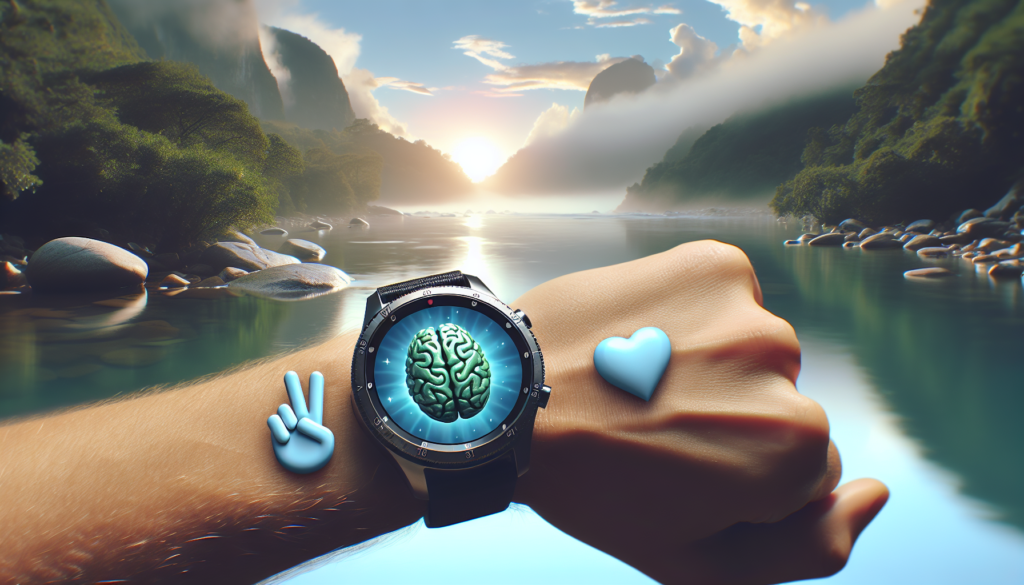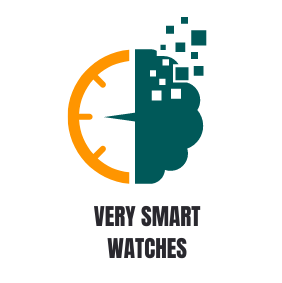Imagine a world where your smartwatch becomes more than just a device on your wrist, but a true partner in your mental well-being journey. With the rise of mental health support apps for smartwatches, this vision is becoming a reality. These innovative apps are paving the way for a health revolution, where your watch not only collects data passively, but actively empowers you to take control of your mental well-being. From personalized wellness dashboards to specialized accessories, these apps offer a range of tools and resources to help you navigate the ups and downs of life, making wellness a conversation that is accessible, inclusive, and ultimately, empowering.
Overview
What are Mental Health Support Apps?
Mental health support apps are digital applications designed to help individuals manage and improve their mental well-being. These apps provide a range of tools and resources that can be accessed through smartwatches, making mental health support more accessible and convenient than ever before. From meditation and mindfulness apps to stress and anxiety management apps, these innovative solutions offer various techniques and features to help users achieve better mental health.
Importance of Mental Health Support Apps for Smartwatches
Smartwatches have become widely popular and are now worn by a large portion of the population. With their ability to track biometric data and deliver notifications, they are the perfect platform for mental health support apps. These apps bring mental well-being right to your wrist, allowing for quick and easy access to tools and resources that can promote positive mental health. They allow individuals to take charge of their mental well-being by providing support, coping strategies, and guidance when they need it most.
Types of Mental Health Support Apps
Meditation and Mindfulness Apps
Meditation and mindfulness apps are designed to help individuals relax, reduce stress, and improve focus by guiding them through various meditation techniques. These apps often include features like soothing sounds, guided meditations, and breathing exercises to help users achieve a calm and peaceful state of mind.
Stress and Anxiety Management Apps
Stress and anxiety management apps provide tools and techniques to help individuals identify and manage their stress levels. These apps often include features like stress level monitoring, breathing exercises, and cognitive-behavioral therapy techniques to help users develop healthy coping strategies and reduce anxiety.
Sleep Tracking and Improvement Apps
Sleep tracking and improvement apps help individuals monitor and analyze their sleep patterns to identify areas for improvement. These apps often include features like sleep tracking, sleep stage analysis, and personalized recommendations to help users achieve better sleep quality and overall well-being.
Emotional Well-being and Mood Tracking Apps
Emotional well-being and mood tracking apps are designed to help individuals monitor and manage their emotions. These apps often include features like mood tracking, journaling, and reflection exercises to help users gain insight into their emotional state and develop strategies for emotional well-being.

Features of Mental Health Support Apps
Breathing Exercises
Many mental health support apps offer breathing exercises to help individuals relax and reduce stress. These exercises typically guide users through several breathing techniques, such as deep breathing or box breathing, to promote a sense of calm and relaxation.
Guided Meditations
Guided meditations are a common feature of mental health support apps. These meditations typically involve listening to a soothing voice guiding users through a meditation practice, focusing on relaxation, mindfulness, or other specific goals.
Emotion Tracking
Emotion tracking features allow users to monitor and track their emotional state over time. This can help individuals gain insight into their emotional patterns and identify triggers or patterns that may impact their mental well-being.
Self-Care Reminders
Self-care reminders are helpful features that provide gentle nudges or notifications to encourage individuals to prioritize their mental well-being. These reminders can prompt users to take breaks, practice self-care activities, or engage in stress-reducing practices throughout the day.
Sleep Tracking and Analysis
Sleep tracking and analysis features allow individuals to monitor their sleep patterns, including the duration and quality of their sleep. This information can help users identify sleep disturbances or areas for improvement, leading to better overall sleep health.
Stress Level Monitoring
Stress level monitoring features use biometric data, such as heart rate variability, to assess an individual’s stress levels. By monitoring stress levels, individuals can gain awareness of how their body responds to stress and take appropriate actions to manage and reduce stress.
Journaling and Reflection
Journaling and reflection features enable individuals to record their thoughts, emotions, and experiences. This practice can help users explore and process their feelings, gain clarity, and track their progress over time.
Cognitive Behavioral Therapy Techniques
Some mental health support apps incorporate cognitive behavioral therapy (CBT) techniques to help individuals reframe negative thoughts and develop healthier coping mechanisms. These techniques can assist users in challenging and modifying unhelpful thinking patterns, promoting positive behavior change and improved mental well-being.
Benefits of Using Mental Health Support Apps
Accessible and Convenient
One of the primary benefits of mental health support apps for smartwatches is their accessibility and convenience. With these apps right on your wrist, you can access the tools and resources they offer whenever and wherever you need them. This accessibility allows for quick and easy support in moments of stress or emotional distress.
Promotes Self-awareness
Mental health support apps can help users develop self-awareness by providing tools for tracking and analyzing their emotions, stress levels, and sleep patterns. This self-awareness enables individuals to better understand their mental well-being and make informed decisions to improve it.
Provides Support and Coping Strategies
These apps offer a range of tools and resources designed to support individuals in managing their mental health. From guided meditations to breathing exercises and cognitive-behavioral therapy techniques, these apps provide users with effective strategies to cope with stress, anxiety, and other mental health challenges.
Encourages Positive Behavior Change
By incorporating features like self-care reminders and journaling, mental health support apps encourage individuals to engage in positive behaviors that promote mental well-being. These apps remind users to prioritize self-care activities, reflect on their thoughts and emotions, and develop healthy habits for emotional well-being.
Facilitates Tracking and Progress Monitoring
Mental health support apps provide features for tracking and monitoring progress in managing mental well-being. This tracking allows individuals to observe improvements, identify patterns, and make necessary adjustments to their self-care routines and coping strategies.

Popular Mental Health Support Apps for Smartwatches
Calm
Calm is a popular mental health support app that offers guided meditations, sleep stories, breathing exercises, and relaxing music. It provides a wide range of content to help individuals manage stress, improve sleep quality, and promote relaxation.
Headspace
Headspace is a well-known meditation and mindfulness app that offers guided meditations and mindfulness exercises. It also provides content specifically designed to address stress, anxiety, and sleep-related issues.
Sleep Cycle
Sleep Cycle is a sleep tracking and improvement app that uses motion and sound analysis to monitor sleep patterns. It provides personalized sleep insights and recommendations to help users achieve better sleep quality.
Moodpath
Moodpath is an emotional well-being app that allows individuals to track their mood and emotional patterns. It provides guided exercises, journaling prompts, and insights to support users in managing their emotional well-being.
Sanvello
Sanvello is an inclusive mental health app that offers resources for stress, anxiety, and depression management. It provides mood tracking, guided journeys, coping tools, and access to a supportive online community.
MyLife Meditation
MyLife Meditation is a meditation and mindfulness app that offers personalized meditation recommendations based on users’ emotions and goals. It provides a wide variety of guided meditations and breathing exercises to support mental well-being.
Aura
Aura is a mindfulness app that offers daily personalized meditations, life coaching, and stories for better sleep. It provides a range of content to reduce stress, anxiety, and improve emotional well-being.
Happify
Happify is a mental health app that uses evidence-based activities and games to promote positive thinking and emotional well-being. It offers exercises to reduce stress, build resilience, and improve overall happiness.
Pacifica
Pacifica is a mental health app that focuses on stress, anxiety, and depression management. It provides tools for tracking mood, relaxation exercises, and cognitive behavioral therapy techniques.
Reflectly
Reflectly is a journaling and reflection app that uses artificial intelligence to provide personalized prompts and reminders. It offers a safe space for individuals to express their thoughts and emotions while promoting self-reflection and well-being.
Considerations When Choosing a Mental Health Support App
Compatibility with Smartwatches
When choosing a mental health support app, it is important to ensure that the app is compatible with your smartwatch. Check the app’s specifications and requirements to confirm that it can be used seamlessly on your device.
User Interface and Experience
Consider the user interface and experience of the app. Look for an app that is intuitive and easy to navigate, with clear instructions and a visually appealing design. A user-friendly interface can enhance your experience and make it more enjoyable to use the app regularly.
Scientific Validity of Techniques
Evaluate the scientific validity of the techniques used in the app. Look for evidence-based practices and techniques that have been proven effective in managing mental health. This ensures that you are using reliable and trustworthy resources for your mental well-being.
Feedback and Reviews
Read user feedback and reviews to gain insights into the app’s effectiveness and user satisfaction. Look for apps with positive reviews and testimonials from individuals who have found the app beneficial for their mental health.
Privacy and Data Security
Consider the app’s privacy policy and data security measures. Ensure that the app takes your privacy seriously and uses secure encryption methods to protect your personal information. It is essential to choose an app that respects your privacy and keeps your data secure.
Limitations of Mental Health Support Apps
No Substitute for Professional Help
It is important to recognize that mental health support apps are not a substitute for professional help. While these apps can offer valuable tools and resources, they should not replace the guidance and support of a mental health professional. If you are experiencing severe or persistent mental health issues, it is always best to seek professional help.
Reliability of Biometric Data
Mental health support apps that rely on biometric data, such as heart rate variability, may have limitations in terms of data accuracy and reliability. Factors such as movement, environmental conditions, and device accuracy can affect the reliability of the data collected. It is important to interpret biometric data with caution and use it as a general indicator rather than a definitive measure.
Effectiveness for Severe Conditions
While mental health support apps can be beneficial for managing mild to moderate mental health conditions, they may be less effective for severe conditions. Individuals with severe mental health conditions may require specialized treatment and support that cannot be adequately provided by an app alone. It is important to consult with a mental health professional for appropriate care.
User Engagement and Sustained Use
One challenge with mental health support apps is maintaining user engagement and sustained use over time. Many individuals may download an app with good intentions but struggle to consistently use it or engage with its features. It is important to find an app that resonates with you and suits your needs to increase the likelihood of long-term engagement and sustained use.
Future Trends in Mental Health Support Apps for Smartwatches
Integration of Artificial Intelligence
The integration of artificial intelligence (AI) is a future trend in mental health support apps for smartwatches. AI can enhance the personalization and effectiveness of these apps by analyzing user data, offering tailored recommendations, and providing real-time feedback and support.
Personalized Recommendations
Future mental health support apps are expected to offer more personalized recommendations based on individual needs, goals, and preferences. By using advanced algorithms and machine learning, these apps can provide tailored content and techniques to support users in their mental well-being journey.
Gamification and Social Connectedness
Gamification and social connectedness are trends that are likely to be incorporated into future mental health support apps. Gamification elements, such as rewards and challenges, can make using the app more engaging and motivating. Additionally, apps may integrate social features that allow users to connect with others, fostering a sense of community and support.
Virtual Reality Integration
Virtual reality (VR) integration is an emerging trend in mental health support apps. VR can provide immersive and interactive experiences that simulate real-life scenarios and environments, offering individuals a unique way to manage anxiety, phobias, and other mental health challenges.
Conclusion
Mental health support apps for smartwatches are revolutionizing the way individuals manage their mental well-being. With a wide range of features and techniques, these apps provide accessible and convenient support to promote self-awareness, offer coping strategies, and encourage positive behavior change. While they have their limitations, mental health support apps have the potential to empower individuals to take control of their mental well-being and lead happier, healthier lives. As technology continues to advance, we can expect to see further innovation and personalization in the future of mental health support apps for smartwatches.

